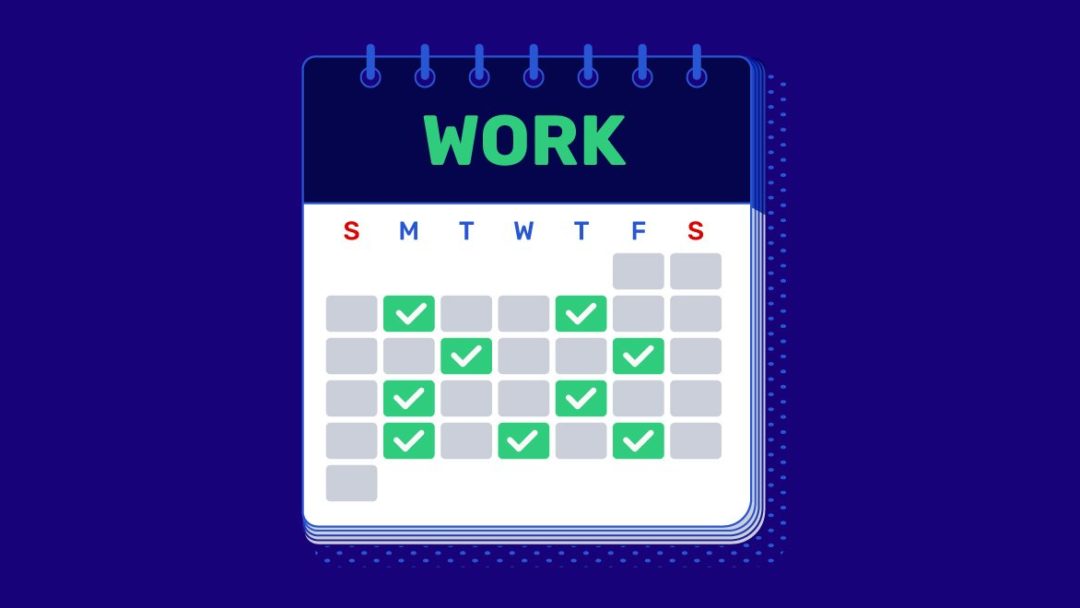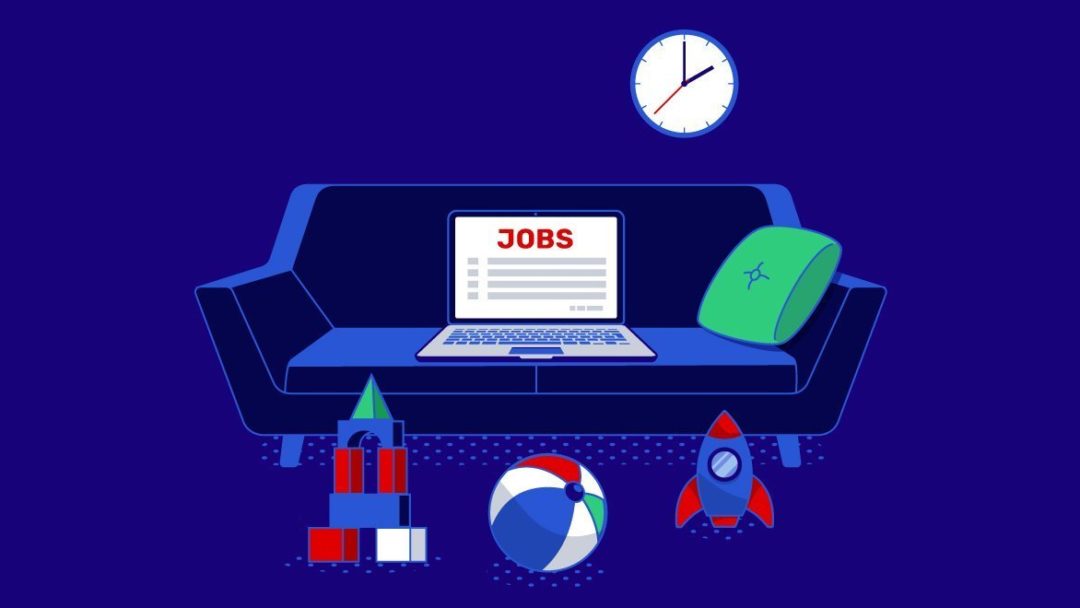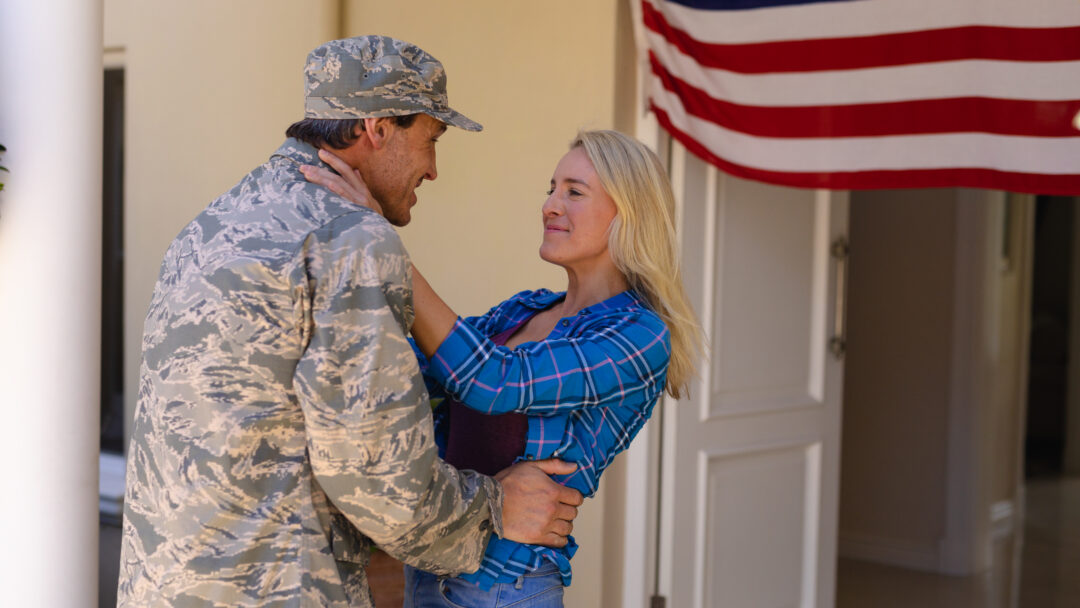Financial Support Information and Resources for Veterans in Debt
Aside from various challenges following service — such as post-traumatic stress disorder, injuries, or homelessness — veterans are often faced with financial instability. Many factors can contribute to veteran debt such as returning with no job in place, moving expenses, new living costs, and more.
The Department of Veterans Affairs (VA) is a federally operated organization dedicated to providing various services (healthcare, housing, obtaining a job) to eligible military veterans and their families.
According to the VA, as of April 2021, there are over 9 million veterans currently enrolled in the VA healthcare program. While it’s difficult to pinpoint every person’s reason for enrolling in VA benefits, it is safe to say that some may be seeking financial assistance.
Let’s take a closer look at the various debt relief programs and services offered by the VA.
VA Debt Management Program
Veterans can use the VA debt-management program to check the status of and manage debt related to:
- Education benefits;
- Non-service-connected pension;
- VA disability compensation.
Those enrolled in the program can make payment plans if they are unable to pay their VA-related debts in one lump sum. Payments to the VA can be made by mail, online, or by phone.
Call the VA Debt Management Center at 800-827-0648 (or 1-612-713-6415 from overseas) for help with VA benefit debt. Or contact the Health Resource Center at 866-400-1238 for help with VA debt related to medical care and/or pharmacy services.
Those interested in receiving debt-management services must first request help with VA debt using VA Form 5655. Doing so will help determine whether or not they are eligible for those services.
VA COVID-19 Debt Relief
While there was no specific program set in place, the VA put a pause on all VA benefit debt collections accrued between April 6, 2020 and September 30, 2021. Veterans suffering from financial hardships as a result of COVID-19 may be eligible to pause and/or create a payment plan for these debts. Those affected will need to contact their local VA office for more information on COVID-19 debt-relief options.
VA Disability Compensation
Through the VA disability compensation plan, the VA offers a monthly tax-free payment to those who have been injured and/or became sick while serving in the military. This compensation is also payable to those whose service worsens a preexisting medical condition.
To be eligible for VA disability compensation applicants must:
- Have a current illness and/or injury that affects your mind or body;
- Have served on active duty, active duty for training, or inactive duty training.
And at least one of the following statements must be true:
- You got sick or injured while serving in the military;
- Serving in the military worsened a preexisting medical condition;
- You have a disability related to your time spent in the military that didn’t appear until after you ended your service.
Both veterans and their qualified dependents can apply for VA disability compensation.
VA Home Loans
VA home loans are available for service members, veterans, and their qualifying dependents. The purpose of the VA home loan program is to assist veterans with buying, building, or repairing their homes.
A few perks of the VA home loan include:
- No downpayment is required by the VA (note that some lenders may require a downpayment);
- Low interest rates;
- Limited closing costs.
Eligibility varies based on your length of service, duty status, and character of service.
VA Health Administration
The Veterans Health Administration is dedicated to providing veterans and their qualifying dependents with health care. This includes but certainly isn’t limited to regular checkups and appointments made with a specialist (such as a cardiologist or mental health provider).
Eligible applicants are those who have actively served or are dependents of those who have served in the military. If you were dishonorably discharged, you may not be eligible for VA health benefits.
VA Programs for Veterans Experiencing Homelessness
Unfortunately, homelessness amongst the veteran population isn’t unheard of. Luckily the VA offers a variety of programs to help veterans experiencing homelessness. The purpose of these programs is to help reduce the number of homeless veterans and veteran dependents throughout the United States.
One of these is the VA Domiciliary Care for Homeless Veterans (DCHV) program. As the oldest healthcare program, the DCHV provides “state-of-the-art, high-quality residential rehabilitation and treatment services for veterans with multiple and severe medical conditions, mental illnesses, addictive disorders, and homelessness.”
Veterans interested in the program are encouraged to contact the National Call Center for Homeless Veterans at 877-424-3838. Those who don’t have access to a phone may visit their local VA center for more information about VA programs that help combat homelessness amongst veterans.
VA Pension/VA Survivor’s Pension
The VA pension program “helps veterans and their families cope with financial challenges by providing supplemental income through the Veterans Pension and Survivors Pension benefit programs.” These programs provide veterans and their families with monthly compensation to help alleviate some of their financial stress.
To be eligible for the pension programs, applicants must be:
- Age 65 or older; or
- Permanently disabled; or
- Receiving skilled nursing care in a nursing home.
The pension amount varies with each case. Those still living with debt in retirement may consider looking into the pension programs for veterans.
GI Bill
The Post-9/11 GI Bill, often referred to as the GI bill, helps veterans pay for schooling and/or job training. Those who have served in active duty after September 10, 2001, can qualify for this bill.
Those who receive GI bill benefits can receive funding to help cover:
- Tuition and fees;
- Money for housing;
- Money for books and other school supplies.
The term length for GI-bill benefits depends on when you were discharged from active duty. Benefit amounts also vary based on which school applicants attend and how long they actively served in the military.
Choosing the right bank can make all the difference in your financial journey. Let’s take a closer look at the banking options for veterans, how to open a bank account, and the types of credit cards specifically for veterans.
Choosing a Bank
It can be overwhelming finding a bank that’s right for you. Thankfully, there are a variety of banks specifically available for veterans and their dependents. A few of these are:
- Veterans Benefits Banking Program (VBBP);
- USAA Federal Savings Bank;
- Navy Federal Credit Union;
- PenFed.
When choosing a bank, you’ll want to consider what you’re using it for — checking, savings, or loans. You’ll also want to consider the location of the bank, its terms and conditions, and banks that charge little-to-no banking fees.
Researching ahead of time is a great way to find banking options that best fit your lifestyle. Keep in mind that some banks, like Chase and U.S. Bank, also have banking options for military members.
Opening a Checking Account
The steps you’ll take to open a checking account vary with each bank. However, most banks require a minimum of $25 to start a checking account. You’ll also need a government-issued photo ID and identification for dependents who will also be linked to the account, if applicable.
Checking accounts are ideal for those who wish to seek a more secure way to manage their money. You could also start a savings account to put money away for emergencies and/or retirement.
Just as with choosing the right bank, there’s a lot to consider when finding the right credit card to apply for. Before choosing a credit card company, you’ll want to:
- Check your credit score;
- Research what type of credit card you need (like one that has rewards);
- Research the various credit card companies.
Once you have found the company you believe is the best fit for your needs, you must then ensure you’re eligible, after which you’ll fill out the credit card application. Here are a few examples of credit cards veterans can apply for if eligible:
- Chase Freedom Flex Credit Card;
- Navy Federal Credit Union Visa Signature Flagship Rewards Card;
- Navy Federal Credit Union More Rewards American Express Card;
- PenFed Power Cash Rewards Visa Signature Card;
- USAA Rewards American Express Card;
- USAA Rewards Visa Signature Card.
Remember to be mindful of interest rates, annual fees, payment plans, and enrollment requirements before applying for any of the above credit cards. Applicants are encouraged to apply for the card that offers them the best benefits and lowest rates.
Let’s take a look at a few more financial assistance programs that help veterans pay off specific debts. Listed below are various programs and resources that veterans can turn to during financial hardships.
Credit Card Debt
Credit card debt can rack up fast which is why it’s important to make payments on time and choose a credit card that is manageable given your current situation. If you are unable to make the minimum payment, then it’s probably best that you refrain from putting charges on your card in the first place.
However, in some cases, using a credit card is a must. This is even truer for those whose credit card is their primary source for covering everyday living expenses. Using a credit card as your only form of payment can be beneficial, but also cause a lot of stress if you’re unable to pay it off, leaving you with an abundance of credit card debt.
Luckily there are many ways to pay off credit card debt. The first of which is reaching out to a trusted debt-relief agency to see how they can help during your time of need. Or, you could reduce the amount of credit card debt you have is by consolidating your debts into one account and setting up a payment plan with your credit card provider.
Healthcare
While veterans can enroll in healthcare benefits provided by the VA, it doesn’t guarantee that all of their medical expenses will be covered. When it comes to veterans with high medical debt, Consumerreports.org claims that “collectively veterans had almost a billion dollars in medical debt in 2019.”
Listed below are a few programs to help veterans pay off medical debt:
- Health Care for Homeless Veterans (HCHV) program: This VA program teams up with providers to help provide community-based treatment for homeless veterans.
- Red Cross military family assistance: The Red Cross partners with multiple military aid societies to “provide quality, reliable financial assistance to eligible applicants.” This includes funds for emergency travel, the burial of a loved one, emergency food and shelter, and medical financial assistance.
There may be programs local to your area that can help with medical debt. You can find these programs and more by researching medical debt relief in your area.
As mentioned above, homelessness amongst veterans is not uncommon. Because of this, numerous programs have been set in place to help get veterans off the streets. Aside from the VA program discussed above, other programs to help veterans with housing concerns include:
- Homeowners Assistance Program (HAP): This particular program is for wounded, injured, or ill members of the Armed Forces and their surviving spouses. The purpose of HAP is to “provide financial assistance to services members and certain DoD civilian homeowners who suffer from financial loss on the sale of their primary residence.”
- Homeless Veterans Assistance Center: This center helps veterans and their families find safe and affordable housing. Those who contact the center can also find additional homelessness services and programs such as assistance with returning to work, healthcare, and mental health.
HUD Exchange: The HUD Exchange offers a variety of initiatives and programs for veterans. Some of these initiatives and programs include the Mayors Challenge, Vets@Home, and 25 Cities, all of which team up with other organizations like the VA, U.S. Department of Labor, and the U.S. Department of Education to put an end to homelessness.
Enrolling in educational opportunities, like college or trade school, can help guide you down the right path after serving in the military. However, continuing your education can be costly.
Just as with most students who need financial assistance to attend college, there are financial aid programs that veterans can enroll in to help pay for schooling. These programs include, but aren’t limited to:
- Centers of Excellence for Veteran Student Success: This program helps other programs to “support veteran student success in postsecondary education by coordinating services to address the academic, financial, physical, and social needs of veteran students.”
- Educational Opportunity Centers Program: This program “provides counseling and information on college admissions to qualified adults who want to enter or continue a program of postsecondary education.” Other services include academic advice, career workshops, help with applications, and mentoring.
- Military Tuition Assistance: This is a benefit that helps eligible members of the military pay up to 100% of their tuition;
- Reserve Education Assistance Program (REAP): REAP is a “VA education benefit program designed to provide educational assistance to members of the Reserve components called or ordered to active duty in response to a war or national emergency as declared by the President of Congress.”
- Veterans Upward Bound Program: This program helps to “motivate and assist veterans in the development of academic and other requisite skills necessary for acceptance and success in a program of postsecondary education.”
Those interested in continuing their education are encouraged to contact their prospective schools to see what types of financial assistance programs they offer directly through the school.
Many factors contribute to our nation’s unemployment rate — job loss, voluntary unemployment, and even advances in technology just to name a few. However, when it comes to veterans and unemployment, one of the main issues is trouble re-entering the civilian workforce after serving in the military.
Here are a few resources you can turn to for help with finding a job after service:
- Unemployment Compensation for Ex-servicemembers (UCX): This program provides unemployment benefits to eligible veterans. To be eligible, you must have been separated from the military under honorable conditions.
- Veterans’ Employment and Training Service: This resource can help veterans find a job, obtain job training, and transition into the working world.
- Veterans Opportunity to Work (VOW): VOW is a program that helps veterans prepare for the working world using trainings, resources, and more.
Remember, try focusing on finding a job that is flexible and aware of your military background, especially as a veteran with a family. Doing so can help ensure you aren’t overwhelmed with hours and/or are taking on a workload you’re unable to handle.
Different acts of legislation have been put in place to help protect our veterans in need. Without them, veterans would struggle even more when seeking financial aid from the government.
Acts like the Military Lending Act (MLA), Servicemembers Civil Relief Act, and the Veterans Health Care and Benefits Improvement Act provide financial and legal protection for veterans, active military members, and their eligible dependents.
Here are a few more resources available for retired service members in need:
- Operation Family Fund: Operation Family Fund is a private nonprofit charitable organization whose mission is to “assist the injured and families of those who have been injured as a part of the global war on terrorism.”
- Hope for the Warriors: Hope for the Warriors is an organization that “provides comprehensive support programs for service members, veterans, and military families that are focused on transition, health and wellness, peer engagement, and connections to community resources.”
- Coalition to Salute America’s Heroes: This organization is dedicated to providing aid to those who have been severely wounded while serving their time in the military;
- The USA Cares assistance program: This program offers emergency financial assistance and post-service skills training to eligible military personnel.
- The American Legion Temporary Financial Assistance program: This is another program that also offers temporary financial relief for veterans and their families. This program also helps to meet the costs of housing, food, utilities, and health expenses.
- Free Grants for Veterans: This online resource provides veterans with a list of various grants they can apply for financial relief. These grants include the $7,500 Halstead grant, $5,000 Doris Day Animal Foundation grant, and more.
- Friends and family: If you reach out to friends and family for assistance, and they agree to lend you money, be sure to treat the situation professionally. Sign a contract that states when you’ll pay them back and how much you’ll owe them, making note of payment arrangements. This can help reassure them that you’re trustworthy and grateful.
As with civilian consumers, veterans can see household spending and living costs add up over time. Additionally, certain debt difficulties are unique to military service members and veterans. Constant relocation and spousal unemployment can increase the risk of military service members falling into debt.
In fact, it’s estimated that 36% of military families have problems meeting their financial obligations. These financial burdens often continue after the military services are completed.
If you served in the armed forces and you’re carrying a heavy debt burden, don’t overlook the potential solutions for debt relief. Some of the best debt consolidation for veterans can be accessed through VA loans and other programs. Since the VA guarantees up to 25% of the loan, lenders are willing to offer more favorable payment terms for veterans.
Why should you consider the best debt consolidation for veterans? If you have multiple credit cards and loans, it can be difficult to keep up with cash flow each month. Even if you’re paying the minimums, you’re facing years of financial problems as you struggle to pay off the balances.
The best debt consolidation for veterans provides a solution to roll all your loans and balances into one simple account. This process often reduces the overall interest costs. Moreover, multiple bills are reduced down to one payment each month. In most situations, this monthly payment is lower than the previous payments, offering an immediate solution for cash flow.
Using the right debt consolidation or relief program can be an effective way to reduce the amount of time it’ll take to eliminate the debts. At the same time, many veterans find that their financial stress is reduced.
Asking for money — whether from someone you know or from an organization — can be stressful. However, remember why you’re seeking help in the first place. It isn’t easy, but it’s necessary. Having the ability to recognize when you need financial help is the first step towards changing your life for the better.
While debt consolidation is available for people of all ages and backgrounds, the best debt consolidation for veterans can be accessed through programs designed with military personnel in mind. Whether the bills piled up while you were deployed, or it was challenging to find employment when your military service was done – debt consolidation might be a good option to consider.
The goal of a debt consolidation program is to help you get out of debt as efficiently as possible. As these balances are reduced, you can regain control of your finances and start getting ahead. Debt consolidation is available for both active service members and veterans. Therefore, it’s never too early to get started with your personalized debt paydown plan.
As you’re looking for the right financing options, compare the interest rates, payment terms, and other details that will affect your loan. Rest assured knowing that the best debt consolidation for veterans can be used to help you find financial peace once again.

Something really exciting happens after people have their first phone call with us.
They start to feel the power of taking back control of their personal and professional life.
Pay off your credit card debt
- Receive A Free Savings Estimate Today
- See How Quickly You Can Be Debt Free
- No Fees Until Your Accounts Are Settled







